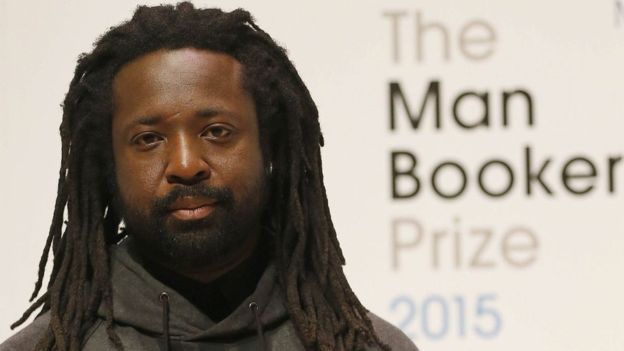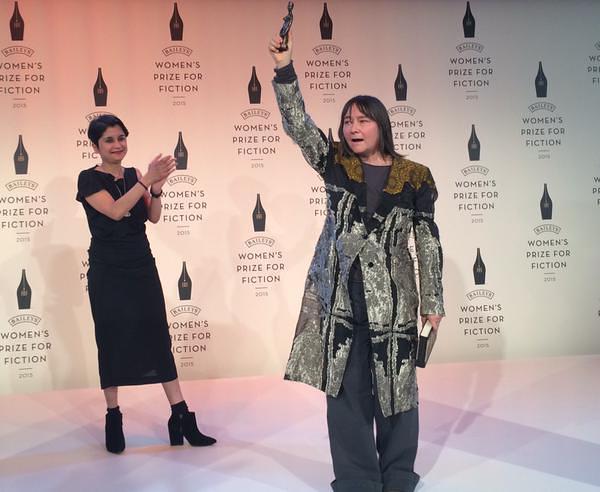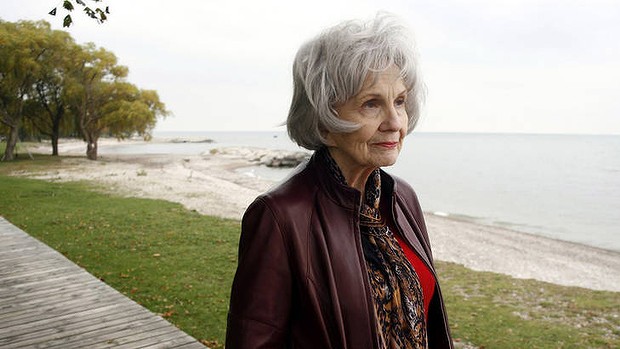Category: Prizes (Page 1 of 2)
Holly Corfield-Carr won the prize for her review of Katrina Palmer’s sound installation ’The Loss Adjusters’ which is the third part of her Artangel project ‘End Matter’ on the Isle of Portland In Dorset.
‘Ali Smith’s How to Be Both would also have made a worthy, very different winner, but this [The Narrow Road to the Deep North ]is in some ways a weightier book’, says Justine Jordan in The Guardian – but does that mean ‘great themes’ (as Grayling claims) or sheer page-numbers (Flanagan =464 pages; Smith = 384) – or do we assume one requires the other?
Alice Munro: Short Stories and the Nobel Prize
Thursday 3 July
1.15pm, Meeting Room, Clare Hall
You might like to read some of the stories in Munro’s Lying Under the Apple Tree (2104) in advance, but this is not essential.
A conversation about Munro between Dame Gillian Beer, Honorary Fellow and Louise Ells, Anglia Ruskin University.
Part of Clare Hall’s Canada Week
http://www.clarehall.cam.ac.uk/events/seminarsevents/cultural-celebrations/canada-week/
‘Nowadays, of course, writing is often seen as a profession like any other. To take this year’s Man Booker winner, Eleanor Catton, as an example of what might be seen as a novelist’s ideal career in 2013: one does a degree in English literature, and immediately afterwards a master’s degree in creative writing. Your first published novel is your MA thesis. Afterwards, you are given a post teaching creative writing in a university, and your second novel wins a major prize. Not to criticise the excellent Ms Catton, but this model of a novelist’s career is going to produce novelists with a narrow grasp of human experience, whose novels are increasingly going to have to come from historical research and meta-fictional game-playing and, ultimately, novels about creative writing degrees.’ Philip Hensher on Penelope Fitzgerald
Anyone want to argue with this, by now pretty standard, view?
Eleanor Catton has just won the 2013 Booker prize with what the Guardian terms an ‘innovative Victorian thriller’ (if that’s not a contradiction in terms). Catton is quoted as saying that her novel The Luminaries was ‘very strongly influenced by long-form box-set TV drama … at last the novel has found its on-screen equivalent’. But what does it mean to be influenced by box-set TV drama?Just a matter of length? Or is there more to it? Something non-Victorian?
Congratulations to Alice Munro, Nobel Laureate. Let’s hope that in her case it’s not the ticket to obscurity that it’s been for Sinclair Lewis, Knut Hamsun and so many others.
But a good year for North American short story writers and an excuse to post Munro’s Paris Review interview, and to recommend ‘The Art of Fiction’ series more generally.
Here is Rob Macfarlane announcing the shortlist, and quoted in The Guardian declaring it ‘a shortlist that shows the English language novel to be a form of world literature. It is a shortlist that crosses continents, joins countries and spans the centuries.’ The six novels were ‘all about the strange ways people are brought together and the painful ways in which they are held apart’.
Congratulations to Jenny who has won a Pilkington Prize in recognition of her work developing Masters in Creative Writing and Advanced Subject Teaching at the Institute for Continuing Education.



